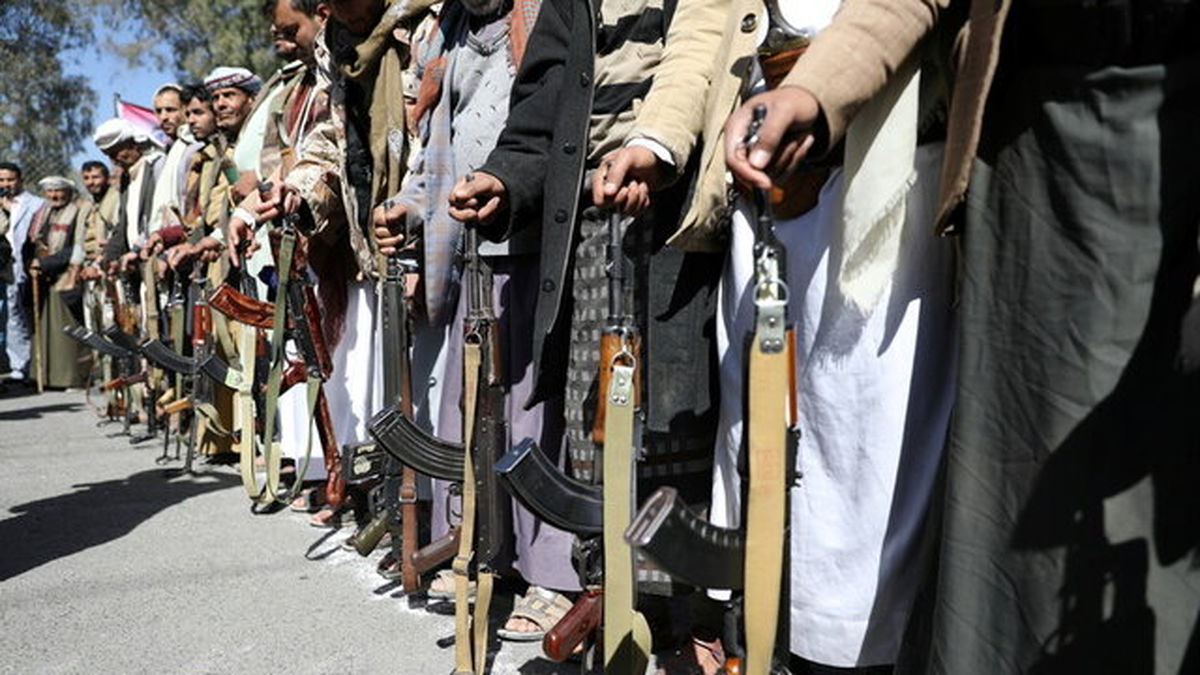According to the agreement, ground, air and naval operations inside and outside Yemen and all ongoing operations in the field will be suspended for two months. Also, 18 ships carrying petroleum products will reach the port of Al-Hudaidah in two months. During this period, Sanaa Airport will resume operations on a limited basis and will have two commercial flights a week to Jordan and Egypt.
Hamid Khoshayand – Expert on regional affairs
Areas of ceasefire agreement
What was the reason for Saudi Arabia’s agreement with the current ceasefire in Yemen? The reason must be sought in the escalation of Ansarollah attacks on Saudi strategic centers and facilities in recent weeks. On March 19, 2022, Ansarollah, in response to the continuation of the siege and the invasion of Yemen by the Saudi coalition, and in line with the large-scale military operation called “Kasr al-Hisar” (breaking the siege), which began on March 11, in a range of drone and missile operations Aramco oil facilities and other major facilities were attacked, which accounted for about 30 percent of Saudi public consumption.
As a result of the attacks, the rising price of crude oil on world markets, following the crisis in Ukraine, reached over 120 dollars per barrel. In the third round of operation Kasr al-Hisar, Ansarollah deliberately attacked critical public utility facilities to show that if Saudi Arabia continued its siege and aggression, it could deal a major shock to energy supplies not only on Saudi Arabia but also on world markets.
Following the attack, Ansarollah unilaterally and voluntarily suspended all ground, air and naval military operations on the internal and external fronts against Saudi Arabia for three days, and Ansarollah’s leader, Abdul Malik al-Houthi, warned the Saudi coalition on missing such an opportunity and stressed that the aggressors would be regretful if they missed the opportunity to suspend military operations.
Ceasefire opportunities
One: In the case of Yemen, nothing is more important than stopping the conflict and ending the war. From this perspective, the current ceasefire has important opportunities, the “key opportunity” and, in fact, its “strategic consequence”, could be the prelude to “ending the Yemen war”, which has so far caused great damage in various dimensions.
Two: The Saudi aggressor coalition has not achieved any significant gains in the Yemen war in the Past seven years. At a time when, according to credible international reports, the Yemen war has cost Riyadh a total of about 504 billion dollars! This is apart from the political, security, social, human and material costs that Saudi Arabia has incurred. The fact that Saudi Arabia has become a hated figure among Muslim nations and has lost its political and international prestige is the least consequence of the war in immaterial dimensions for Riyadh.
In this regard, the recent two-month ceasefire is a “golden opportunity” for the Saudis to pull themselves out of the quagmire they have created by demonstrating their commitment and practical commitment to its honest implementation. Meanwhile, the current ceasefire is an opportunity for the Saudi aggressor coalition to reconsider its political and field calculations to prepare for a lasting and comprehensive peace.
Third: Ansarollah has achieved “strategic and valuable achievements” over the past seven years through resistance and stability and a series of defensive and offensive operations with a deterrent approach. In this regard, the current ceasefire, which has been accepted by the Saudis following the expansion of Ansarollah’s strategic operations deep inside Saudi Arabia and against its vital centers, is a special opportunity to “prove Ansarollah’s important role in the Yemen equations” and “consolidate field and political positions of Ansarollah” as well as “strengthening the foundations of the government of national salvation.”
Challenges
Since the first day of the ceasefire, the Saudi coalition has violated the ceasefire more than 400 times in various forms, including artillery attacks, airstrikes, shootings, flying of spy fighters and establishment of military bases in the conflict areas.
Repeated violations of the ceasefire, as the most important challenge behind which there must be “suspicious goals”, cannot provide a clear perspective on the successful implementation of the ceasefire. If the Saudi rulers seek to “misuse” the ceasefire to regroup and restore logistical, weaponry and combat capabilities to continue attacks and crimes against the Yemeni people, they must now take responsibility for the consequences and “dangerous consequences”.
Concluding point
The current ceasefire is the last chance for the invading Saudi coalition to end the war and the siege of Yemen. If Saudi Arabia violates it with its actions or abuses it militarily and on the ground, as Ansarollah has warned, it will definitely face a “shocking reaction” and “more painful attacks”.
Continuing the war and eroding it is not a good option for the Saudis. Ansarollah and the Yemeni people have shown that they are not willing to give up and retreat from their positions and principles under any circumstances. The continuation of the war is not something that the Yemenis are afraid of. Experience has shown that the longer the battlefield, proportionally the military strength and offensive and strategic operations of Ansarollah has increased against the Saudis.
The Saudi rulers must be well aware of the fact that today the most important front of the conflict and the “main center of gravity” of the war is not inside Yemen but deep inside Saudi Arabia.










0 Comments